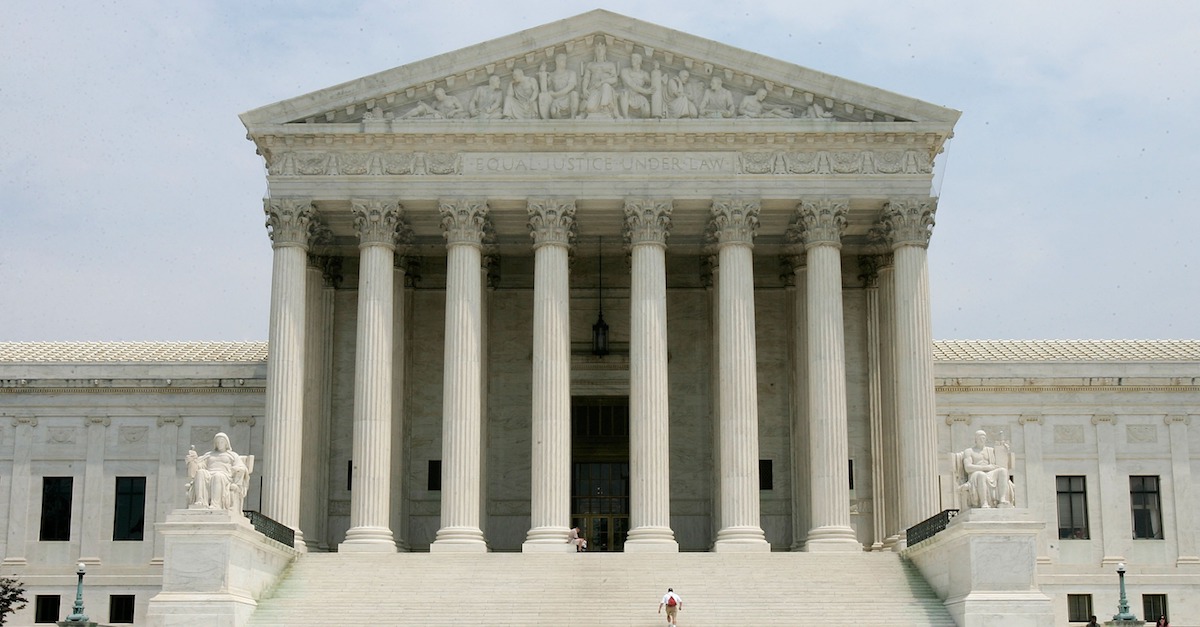
It’s going to be a big week in Washington, D.C., where both Congress and the Supreme Court are poised for some major decision-making. Here are some things to keep on your radar.
1. The House may vote to expand the Civil Rights Act to include LGBT rights
House Democrats have been promising to get to work on H.R. 5, known as the “Equality Act.” Passage of this act would be a pretty big deal; it would give sexual orientation and identity the same level of protection afforded to race and national origin under the Civil Rights Act. That means discrimination against a person on the basis of sexual orientation or identity would be prohibited as a matter of federal law, instead of relegating the matter to state public accommodation laws.
The Equality Act (and essentially, the general concept of anti-discrimination laws to protect LGBT Americans) has and will continue to be hotly contested. It’s likely to pass easily in the Dem-controlled House, but will have a much tougher climb in the Senate.
Opponents’ arguments range from the religious (“the right to discriminate on the basis of sexual orientation is part of guaranteed religious freedom”), to the historical (“unlike race, which is an immutable characteristic, sexual orientation is just a lifestyle choice undeserving of legal protection”), to the foreboding (forced equality for LGBTs would eradicate gender-based differences, such as women’s rights). Still, the Equality Act has broad support from many major U.S. companies who have been lobbying for its passage for several years.
2. The Senate may approve Rod Rosenstein’s replacement
Last week saw the resignation of Deputy Attorney General Rod Rosenstein, and the approval of his successor, Jeffrey Rosen, by the Senate Judiciary Committee; Rosen’s new job now rests in the hands of the full Senate.
Rosen has been serving as Deputy Secretary of Transportation since May 2017. If confirmed, he’ll head to the DOJ, where he’d be working under his former Kirkland & Ellis colleague Attorney General William Barr.
3. There will be Mueller-Barr drama
There’s still plenty of discussion in the House over the potential testimony of special counsel Robert Mueller. There’s plenty of will-he-or-won’t-he suspense with respect to Mueller and Barr. Maybe Mueller will testify, maybe Barr will pull rank and instruct him not to testify. Maybe Congress will move forward on its plans to hold Barr in contempt of Congress for ignoring subpoenas, or maybe that effort will die in the Senate. Stay tuned for hearings, subpoenae, and public threats.
Meanwhile, over at the Supreme Court, several decisions are expected this week.
1. Immigration and the Census Questionnaire
The Court is expected to end the dispute in Dept. of Commerce et al. v. New York, et al., the case over whether questions about citizenship can properly be included in the 2020 census questionnaire. Many believe that including questions about citizenship will have the result of persuading non-citizens and other immigrants to skip the census altogether – which would lead to an inaccurate population count for purposes of congressional representation and federal funding.
2. Gerrymandering.
SCOTUS has a chance to take a stand on partisan gerrymandering, but it may decide to bow out altogether. The Court is handling two cases – one from North Carolina that gave Republicans an advantage, and one from Maryland that helped Dems– that challenge lines drawn for congressional districts. At issue isn’t simply how lines should be drawn, but whether courts should have any say in what is potentially a purely political process.
3. The Religiousness of Crosses.
The Court will be deciding whether the Establishment Clause prohibits a 93-year-old cross-shaped World War I memorial in Maryland. Some non-Christian county residents sued, arguing that government maintenance of the memorial violated the First Amendment by endorsing Christianity. SCOTUS’ decision could have wide impact on other controversies involving government endorsement of religious symbols.
[image via Alex Wong/Getty Images]
This is an opinion piece. The views expressed in this article are those of just the author.